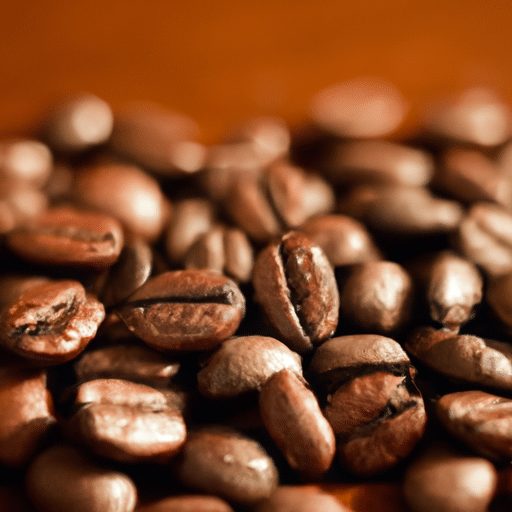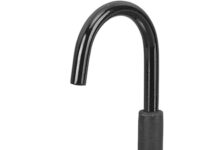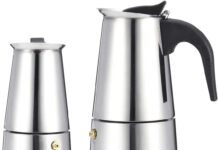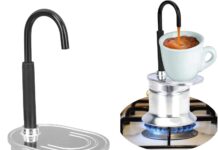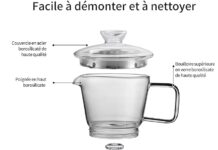Have you ever wondered why the coffee from your trusty coffee maker sometimes turns out unbearably bitter? We all love the rich and comforting taste of a freshly brewed cup of coffee, but when that bitter taste lingers on our taste buds, it can be quite disappointing. In this article, we will explore some of the common reasons behind this bitter phenomenon and provide you with some tips on how to make your coffee less bitter and more enjoyable. So, grab your favorite mug and let’s dive into the world of bitter coffee!
Problems with the coffee beans
Low-quality coffee beans
One of the main reasons for bitter coffee is the use of low-quality coffee beans. These beans are often sourced from inferior regions or poorly processed, resulting in a subpar taste. To ensure a better coffee experience, we recommend investing in high-quality beans from reputable sources. Look for beans that have been freshly roasted and labeled with the roast date for optimal flavor.
Incorrect coffee bean grind size
Using the incorrect grind size can also lead to bitterness in coffee. If the grind is too fine, it can result in over-extraction and a bitter taste. On the other hand, a coarse grind can lead to under-extraction and a weak, unpleasant flavor. Experiment with different grind sizes to find the sweet spot that suits your taste preferences and brewing method.
Stale coffee beans
Coffee beans have a limited shelf life, and using stale beans can contribute to a bitter taste in your brew. As coffee beans age, they lose their freshness and become more susceptible to oxidation, which affects the flavor. To avoid this issue, make sure to store your coffee beans in an airtight container away from direct sunlight and moisture. Purchase smaller quantities of beans at a time to ensure you’re always using fresh ones.
Water-related issues
Using hard water
The type of water used in the brewing process plays a significant role in the taste of your coffee. Hard water, which contains a high mineral content, can result in a bitter and harsh flavor. Consider using filtered or soft water to minimize the negative impact of minerals on your brew’s taste.
Using water that is too hot
Brewing coffee with water that is too hot can also lead to a bitter flavor. The ideal water temperature for brewing coffee is between 195°F and 205°F (90°C and 96°C). Anything above this range can cause over-extraction and bitterness. Use a thermometer to ensure the water is at the right temperature before beginning the brewing process.
Not using filtered water
Tap water often contains impurities that can affect the taste of your coffee. By using unfiltered water, you may introduce unwanted flavors or odors to your brew. Consider using a water filter or purchasing filtered water to maintain the purity of your brew.
Using too much water
Using an excessive amount of water in the brewing process can result in a weak and bitter coffee. It dilutes the coffee grounds, leading to under-extraction and a lack of flavor. Follow the recommended coffee-to-water ratio for the brewing method you’re using to achieve a balanced and flavorful cup of coffee.
Issues with the coffee maker
Dirty coffee maker
A dirty coffee maker can contribute to a bitter taste in your coffee. The accumulation of coffee residue and oils can affect the overall flavor of your brew. Regularly clean your coffee maker according to the manufacturer’s instructions to ensure optimal performance and a better-tasting cup of coffee.
Using the wrong type of coffee filter
Different brewing methods require specific types of coffee filters. Using the wrong filter can lead to over-extraction or under-extraction, resulting in a bitter taste. Familiarize yourself with the recommended filter for your coffee maker and ensure you’re using the correct one for the best flavor.
Incorrect coffee-to-water ratio
The ratio of coffee to water used in the brewing process greatly impacts the taste of your coffee. Using too little coffee can result in a weak and under-extracted brew, while using too much can lead to an overpowering and bitter flavor. Measure the coffee and water accurately, following the recommended ratio for your desired strength.
Using old or malfunctioning coffee maker
An old or malfunctioning coffee maker may not brew coffee at the optimal temperature or extract the flavors properly. This can contribute to a bitter taste in your cup. If you suspect that your coffee maker isn’t performing as it should, consider replacing it or having it serviced to ensure the best brewing results.
Brewing process problems
Incorrect brewing time
Brewing coffee for too long or too short a time can affect the taste of your brew. Over-extraction occurs when the coffee grounds are in contact with water for an extended period, resulting in bitterness. Conversely, under-extraction leads to a weak and sour flavor. Follow the recommended brewing time for your brewing method to achieve a balanced and flavorful cup of coffee.
Not preheating the coffee maker
Neglecting to preheat the coffee maker can impact the extraction process and result in a bitter taste. Preheating helps maintain a consistent water temperature throughout the brewing process. It ensures that the coffee grounds are properly saturated and extracted, leading to a better-tasting cup of coffee.
Not cleaning the coffee maker regularly
Regular cleaning of the coffee maker is essential for maintaining the quality and flavor of your coffee. A buildup of coffee residue can affect the taste in a negative way. Make it a habit to clean your coffee maker after each use and periodically descale it to prevent any residue from interfering with the taste of your coffee.
Not using the right type of coffee
Different brewing methods and personal preferences call for specific coffee types. Failure to use the appropriate coffee for your brewing method can result in a bitter taste. Experiment with different coffee varieties, such as light, medium, or dark roast, to find the flavor profile that suits your preferences and brewing method.
Storage and maintenance
Poor coffee storage
Improper coffee storage can lead to stale and bitter-tasting coffee. Exposure to air, moisture, heat, and sunlight can speed up the oxidation process, degrading the flavor of your beans. Store your coffee in airtight containers in a cool, dark place to keep it fresh and flavorful for a longer period.
Using a dirty coffee pot
A dirty coffee pot can leave behind residue and old coffee, affecting the taste of your fresh brew. Make it a practice to clean the coffee pot thoroughly after each use to remove any buildup. This ensures that each cup of coffee is free from any residual flavors.
Personal preferences and habits
Leaving the coffee on a warming plate for too long
Leaving brewed coffee on a warming plate for an extended period can result in over-extraction and a bitter taste. The heat from the plate causes the coffee to continue brewing, leading to a less desirable flavor. Avoid this issue by enjoying your coffee as soon as it’s brewed or transferring it to an insulated carafe to keep it hot without compromising the taste.
Using too much coffee
Using an excessive amount of coffee can overpower the flavors and lead to a bitter and strong brew. Experiment with different amounts to find the right balance that suits your taste preferences. Adjusting the coffee-to-water ratio can help achieve a more balanced and enjoyable cup of coffee.
Adding too many additional flavorings or condiments
While adding flavorings or condiments to your coffee can enhance the taste, using too much can overwhelm the natural flavors of the coffee and lead to a bitter taste. If you enjoy adding extras to your coffee, start with a small amount and adjust to taste. This way, you can still enjoy the additional flavors without overpowering the coffee itself.
Health-related factors
Illness or medications affecting taste perception
Certain illnesses or medications can affect your taste perception, making coffee taste more bitter than usual. If you notice a significant change in the taste of your coffee and suspect it may be related to your health or medication, consult with a healthcare professional for further guidance.
Sensitivity to bitterness
People have varying levels of sensitivity to bitterness, and some individuals may be more prone to perceiving bitterness in their coffee. This can be influenced by genetic factors or personal preference. Understanding your sensitivity to bitterness can help you adjust your coffee brewing and flavoring choices accordingly.
Troubleshooting
Here are some troubleshooting tips to help improve the taste of your coffee:
- Experiment with different coffee beans: Try beans from different origins or with varying roast levels to find the flavor profile you enjoy most.
- Adjust the coffee bean grind size: Fine-tune the grind size to achieve the optimal extraction for your brewing method.
- Use fresh coffee beans: Ensure you’re using freshly roasted beans to preserve the flavor and prevent bitterness from stale beans.
- Try using soft or filtered water: Minimize the impact of minerals by using soft or filtered water for brewing.
- Ensure the water is at the correct temperature: Use a thermometer to validate the water temperature falls within the recommended range for brewing.
- Clean the coffee maker regularly: Remove any coffee residue and oils that can affect the taste of your brew.
- Use the appropriate coffee filter: Make sure to use the correct type of filter recommended for your coffee maker or brewing method.
- Measure the coffee and water accurately: Follow the recommended coffee-to-water ratio to achieve a well-balanced and flavorful cup.
- Check for any issues with the coffee maker: Ensure your coffee maker is functioning properly and not causing any issues during the brewing process.
- Follow the recommended brewing time: Brew your coffee for the recommended duration to avoid over-extraction or under-extraction.
- Preheat the coffee maker: Preheating helps maintain a consistent water temperature for optimal extraction.
- Store coffee properly in airtight containers: Keep your coffee beans or grounds in airtight containers to maintain their freshness and prevent any unwanted flavors.
- Clean the coffee pot after each use: Remove any residue or old coffee that can affect the taste of your fresh brew.
- Avoid leaving coffee on a warming plate for too long: Enjoy your coffee promptly or transfer it to an insulated carafe to preserve the flavor.
- Experiment with different brewing techniques: Explore alternative brewing methods to find the one that produces the best taste for you.
- Consult a doctor if taste perception is consistently off: If you consistently experience a bitter taste in coffee or other foods, it may be worth consulting a healthcare professional to rule out any underlying health issues.


